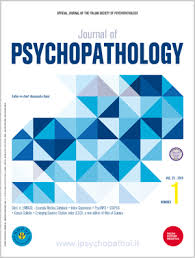Abstract
The question addressed in this paper is whether guilt serves as a source of information in the assessment of time resources. Across two studies, we examined whether state-induced guilt leads to an overestimation of the time required to complete a series of activities and an underestimation of the number of tasks one can accomplish within a given time frame. Additionally, we investigated whether individuals high in trait guilt exhibit these tendencies more than others. Participants with high and low levels of trait guilt were included in the study. Three affective states were induced: guilt, anxiety and a neutral condition. Participants were asked to estimate both the time required for various daily activities and the number of such activities that could be completed within a fixed time period. Contrary to our predictions, individuals high in trait guilt underestimated the time required to complete a given number of activities and overestimated the number of tasks they could accomplish within a set time interval after experiencing guilt induction – rather than following anxiety or neutral affect induction. We discuss these findings in relation to the prudential mode and the distinct roles of deontological and altruistic guilt in the evaluation of time resources with no-interpersonal tasks.
Links
- https://apc.it/2025-mancini-the-influence-of-guilt-emotion-on-time-evaluation/
- doi:DOI: 10.12832/117342
BibTeX (Download)
@article{Gangemi2025b,
title = {The Influence of Guilt Emotion on Time Evaluation: A Preliminary Study},
author = {Amelia Gangemi and Andrea Gragnani and Chiara Rizzotto and Febronia Riggio and Francesco Mancini},
editor = {Il Mulino},
url = {https://apc.it/2025-mancini-the-influence-of-guilt-emotion-on-time-evaluation/},
doi = {DOI: 10.12832/117342},
issn = {2279-7785},
year = {2025},
date = {2025-07-30},
urldate = {2025-07-30},
journal = {Reti, saperi, linguaggi, Italian Journal of Cognitive Sciences},
volume = {1},
pages = {153-174},
abstract = {The question addressed in this paper is whether guilt serves as a source of information in the assessment of time resources. Across two studies, we examined whether state-induced guilt leads to an overestimation of the time required to complete a series of activities and an underestimation of the number of tasks one can accomplish within a given time frame. Additionally, we investigated whether individuals high in trait guilt exhibit these tendencies more than others. Participants with high and low levels of trait guilt were included in the study. Three affective states were induced: guilt, anxiety and a neutral condition. Participants were asked to estimate both the time required for various daily activities and the number of such activities that could be completed within a fixed time period. Contrary to our predictions, individuals high in trait guilt underestimated the time required to complete a given number of activities and overestimated the number of tasks they could accomplish within a set time interval after experiencing guilt induction – rather than following anxiety or neutral affect induction. We discuss these findings in relation to the prudential mode and the distinct roles of deontological and altruistic guilt in the evaluation of time resources with no-interpersonal tasks.},
keywords = {},
pubstate = {published},
tppubtype = {article}
}





